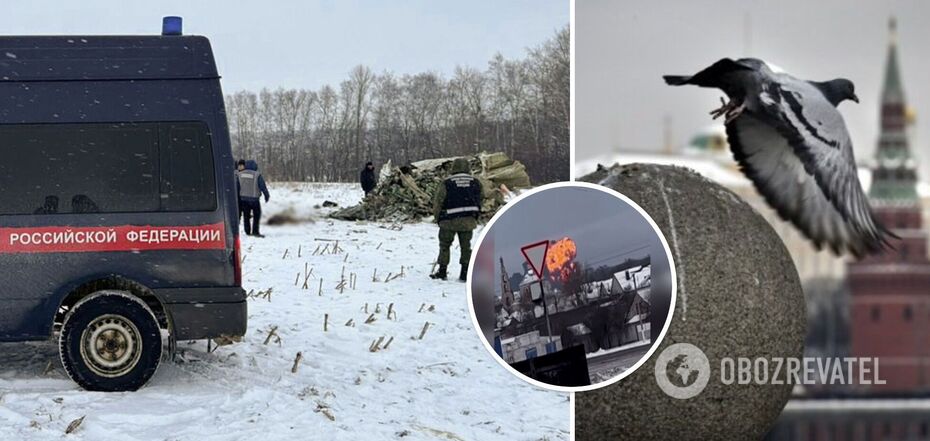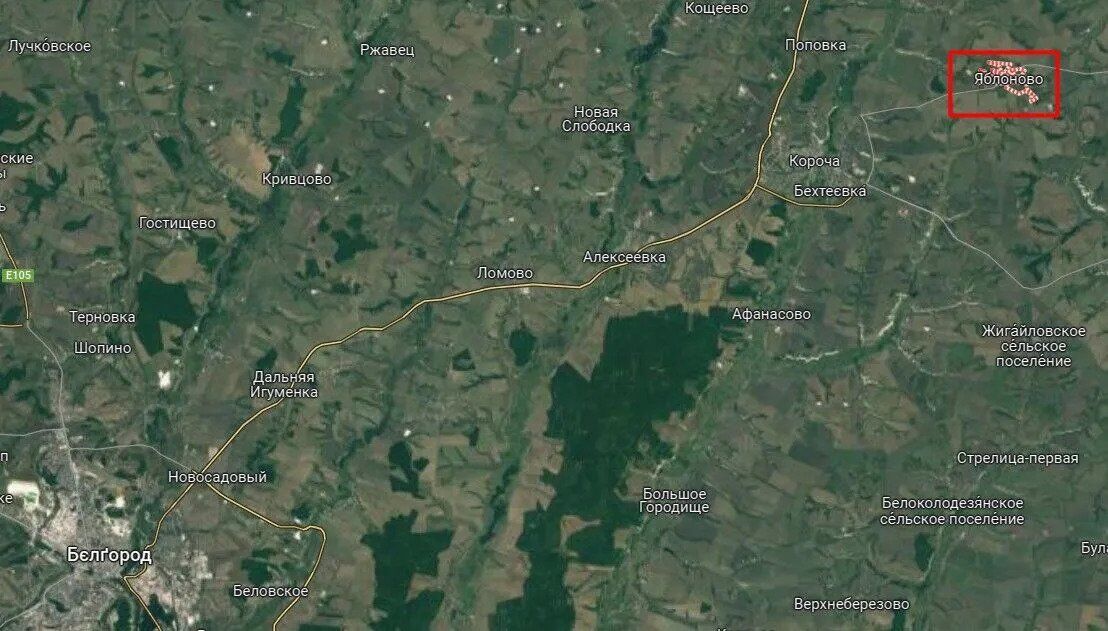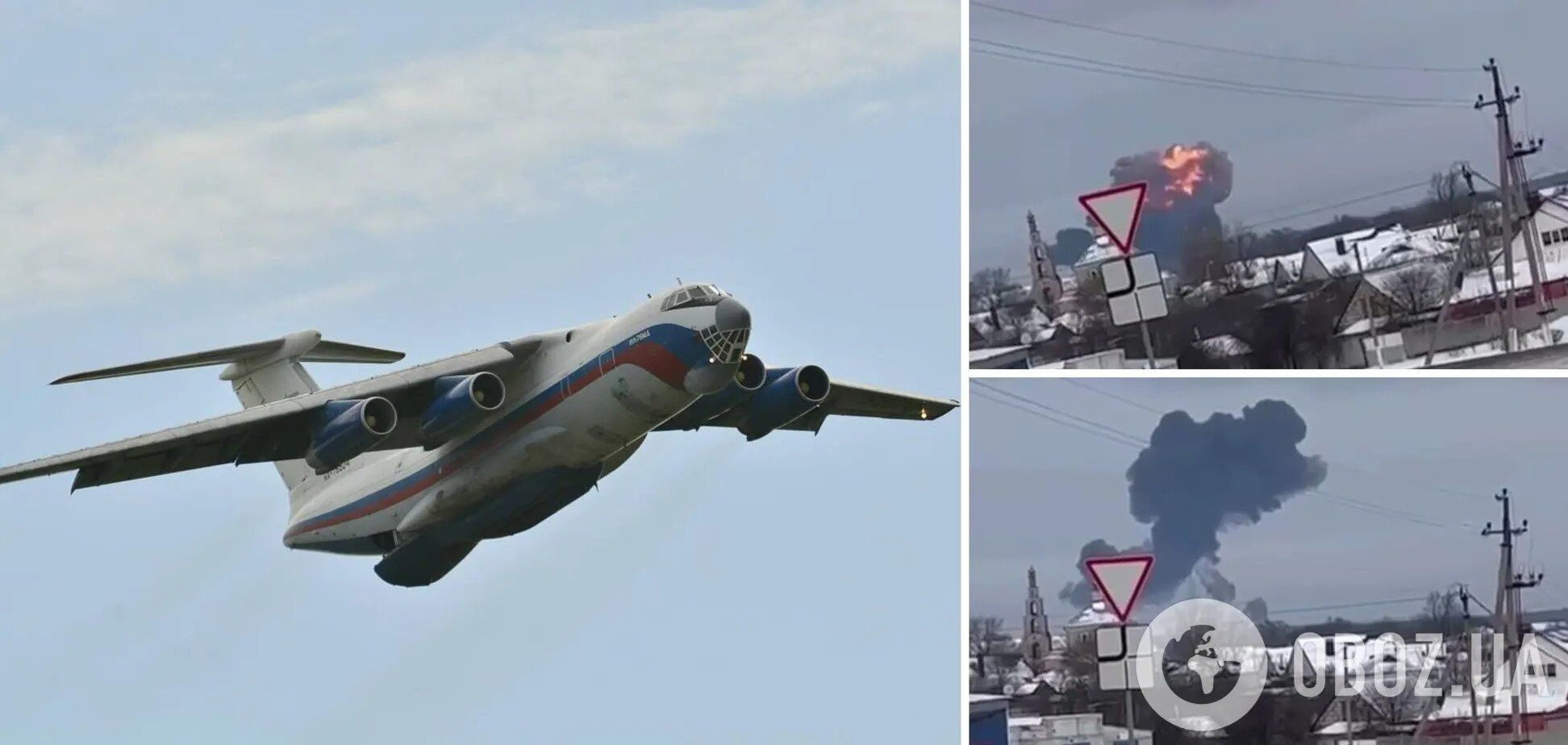War in Ukraine
The Kremlin pursued two goals: ISW explained how the Russian Federation used the crash of the Il-76 in the Belgorod region
On the morning of January 24, an IL-76 military transport aircraft crashed in the Belgorod region of the Russian Federation, and immediately, players in the information space of the aggressor country took advantage of the disaster to spread fake news. The aggressor used this tactic to sow internal discontent in Ukraine and undermine the West's desire to continue providing military support.
The primary topic for the disinformation campaign was the propagandists' statements about the alleged presence of Ukrainian prisoners of war on board the plane. Analysts at the Institute for the Study of War (ISW) explained the goals the Kremlin pursues by spreading these lies.
Firstly, the experts outlined the chronology of how the information about the plane crash in Russia was covered the day before. The IL-76 crashed in the village of Yablonovo, Belgorod region (50 km northeast of Belgorod), as confirmed by geolocated footage published by various sources. The Russian Defense Ministry claimed that the plane was allegedly carrying "65 Ukrainian prisoners of war" and was "heading for a pre-arranged exchange" at the Kolotylivka border checkpoint between Russia and Ukraine. The ministry also accused Kyiv of hitting the plane with two unspecified missiles, resulting in the "deaths of 65 prisoners of war, six Russian crew members, and three Russian servicemen."
One of Russia's most ardent propagandists and editor-in-chief of the Kremlin-controlled RT, Margarita Simonyan, published a so-called list of "names of Ukrainian prisoners of war" who Moscow claims were on board. However, in parallel, several Russian sources, as well as Ukrainian ones, noted that at least one of the alleged prisoners of war had already been exchanged in a previous swap on January 3.
Ukrainian officials, including the Ukrainian Parliamentary Commissioner for Human Rights, Dmytro Lubynets, and the Ukrainian Coordination Headquarters for the Treatment of Prisoners of War, immediately responded to the incident, emphasizing that Ukraine was investigating the plane crash. They urged the public not to draw premature conclusions based on unconfirmed facts.
The spokesperson for the Main Military Intelligence Directorate, Andriy Yusov, confirmed that the exchange of prisoners of war was supposed to take place on January 24 but did not commence. Later, the GUR stated that Ukraine "does not have reliable and comprehensive information about who exactly was on board the plane" in the Belgorod region of the Russian Federation. They also emphasized that Ukraine "will continue to take measures to destroy the means of delivery" and "control the airspace" in the Kharkiv-Belgorod border area.
Ukrainska Pravda, citing unspecified sources in the Armed Forces, initially reported that the Russian Il-76 was transporting S-300 anti-aircraft missile systems, commonly used by the occupiers to target ground installations in the Kharkiv region.
President Volodymyr Zelenskyy, in his address on the evening of January 24, stated that Ukraine is actively working to establish "all clear facts," and the Institute for the Study of War (ISW) is examining "the fate of all prisoners."
The analysts clarified that the ISW is not currently assessing the circumstances of the IL-76 crash and cannot independently verify Russia's or Ukraine's statements about the incident.
However, they highlighted how Russian propagandists seized upon this event to disseminate disinformation about Ukraine, particularly on the world stage.
Andrey Kartapolov, chairman of the Russian State Duma Defense Committee, alleged that Ukraine "deliberately shot down the IL-76," knowing it "contained Ukrainian prisoners of war." He called for an indefinite suspension of all exchanges.
Russian Security Council Deputy Chairman Dmitry Medvedev has attributed the plane crash to Ukraine's "internal political struggle." Russian Foreign Minister Sergei Lavrov, present in New York for a UN Security Council meeting, urgently called for another meeting to address the crash and accused Ukraine of "terrorism."
"Such Russian accusations are aimed at sowing discontent in Ukraine and fostering increased distrust of the Ukrainian government, aligning with other Russian information efforts to weaken Kyiv domestically," ISW stated.
The analysts underscored that the exchange of prisoners of war is a sensitive issue in both Russia and Ukraine, and references to this topic predictably provoke an emotional reaction. In light of this, the Kremlin baselessly claimed that Ukraine "struck the IL-76 with missile systems provided by the United States or Germany." ISW analysts believe this was an attempt to dissuade Ukraine's Western partners from providing critical air defense systems necessary for continuous defense against Russian air attacks.
As reported by OBOZ.UA, military expert Oleksandr Kovalenko exposed Russia's lies about the Il-76 crash and highlighted crucial nuances. He emphasized that the Russian Defense Ministry's statements about "Ukrainian prisoners of war" on board are false. Additionally, he clarified that the plane took off from Russian territory and did not land, and the photos from the crash site do not depict the bodies of the "dozens of people" allegedly on the flight.
Only verified information is available on our Telegram channel OBOZ.UA and Viber. Do not fall for fakes!





























